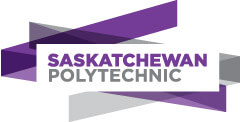About Business Information Systems Diploma in Saskatchewan Polytechnic
Program Overview
Information technology, business software, mobile platforms—information systems are reinventing the way we do business. Computer-savvy people with programming and development skills are in demand in the business world. When your skill set includes training in business solution development, you’re a hot commodity.
Business Information Systems (BIS) is a two-year diploma program offered full-time at Saskatchewan Polytechnic, Moose Jaw Campus. It includes four academic semesters and a six-month paid co-operative education work term.
The Business Information Systems program starts with a solid foundation in business basics with a focus on information technology functions and learning how to use them to develop meaningful business solutions. This includes training in:
- Software development languages (Visual Studio.NET, Java, COBOL);
- Computer hardware, networking and operating systems (Windows, Unix and Linux);
- Data gathering, modeling and database management systems (Oracle, SQL Server 2000);
- Retrieval techniques of databases and programming languages (SQL, PLSQL, ADO.NET, JDBC); and
- Target platforms, including Windows application development, networked software development, web application development (XHTML, JavaScript, ASP, Java).
You’ll use cutting edge technology in servers, programming and mobile apps. You’ll have opportunities to develop or enhance actual production applications, and build hands-on skills in systems analysis, design methodologies and project management.
Diploma to Degree
Graduates can apply to transfer into degree programs at the University of Regina's Paul J. Hill School of Business, the University of Regina's Computer Science department, the University of Lethbridge and Athabasca University.
Your Career
You’re job-ready at graduation. You could work as a software developer, systems analyst, programmer analyst, web/mobile app developer or help desk support. As you gain experience, explore opportunities in IT management or build specialized skills in database administration, advanced web development, project and network management. You could also build a name for yourself as a private consultant or independent contractor.
Academic qualification equivalents:
- Grade 12 with any 30-level mathematics course or with ICTC FIT (Information and Communication Technology Council Focus on IT) certificate
English language requirements (one of the below):
- IELTS : Overall minimum score of Band 6.5 with a minimum score of 5.0 in each component.
- TOEFL : An overall minimum score of 81 on the Internet-based Test of English
- PTE : A minimum score of 63 with minimum component scores of 50.
Saskatchewan Polytechnic Highlights
| Type |
Public |
| Campus Setting |
Urban |
| Application mode |
Online and Paper mode available |
| Graduation rate |
62% |
| Acceptance rate |
96% |
| Number of Students |
16,008 |
| Overall cost of living |
14,762 CAD |
| Academic calendar |
Semester based |
| % of International students |
6% |
| Number of campuses |
4 |
| Medium of instructions |
English |
| Undergraduate Tuition fee |
14,044 CAD |
| Postgraduate Tuition fee |
16,426 CAD |
| Cost of living |
694 -1147 CAD per month |
Saskatchewan Polytechnic First-Year Tuition Fees And Living Expenses For International Students
Over the course of one academic year, the following graph displays tuition and living expense estimates in Canadian currency for one full-time international undergraduate student. Please bear in mind that these are only estimates; actual pricing will vary depending on your needs and preferences. Other factors to consider include currency changes, visa and study authorization fees, and vacations back home.
- For international students, the overall fees will range from:-
| Particulars |
Amount |
| Administrative fees |
50.00 to 150.00 CAD |
| Application fees |
150 CAD |
| Student association fee |
95.00 to 445.00 CAD |
| Non-refundable fee at the start) |
1,000 CAD |
| Tuition fee range |
6,195 to 18,089 CAD |
| Laboratory fee |
100.00 to 409.00 CAD with no fees for
some courses which do not have a lab service. |
| Books and Supplies |
200 to 3,725 CAD |
| Technology fee |
50 to 146 CAD |
- For a student of Saskatchewan Polytechnic the required financials (Cost of Attendance) can be:-
| Description of Financials |
Amount in CAD |
| Average cost of tuition |
11245.77 CAD |
| Cost of living |
10799.39 CAD |
| Application fee |
150 CAD |
| Estimated total (per year) |
22,195.16 CAD |
